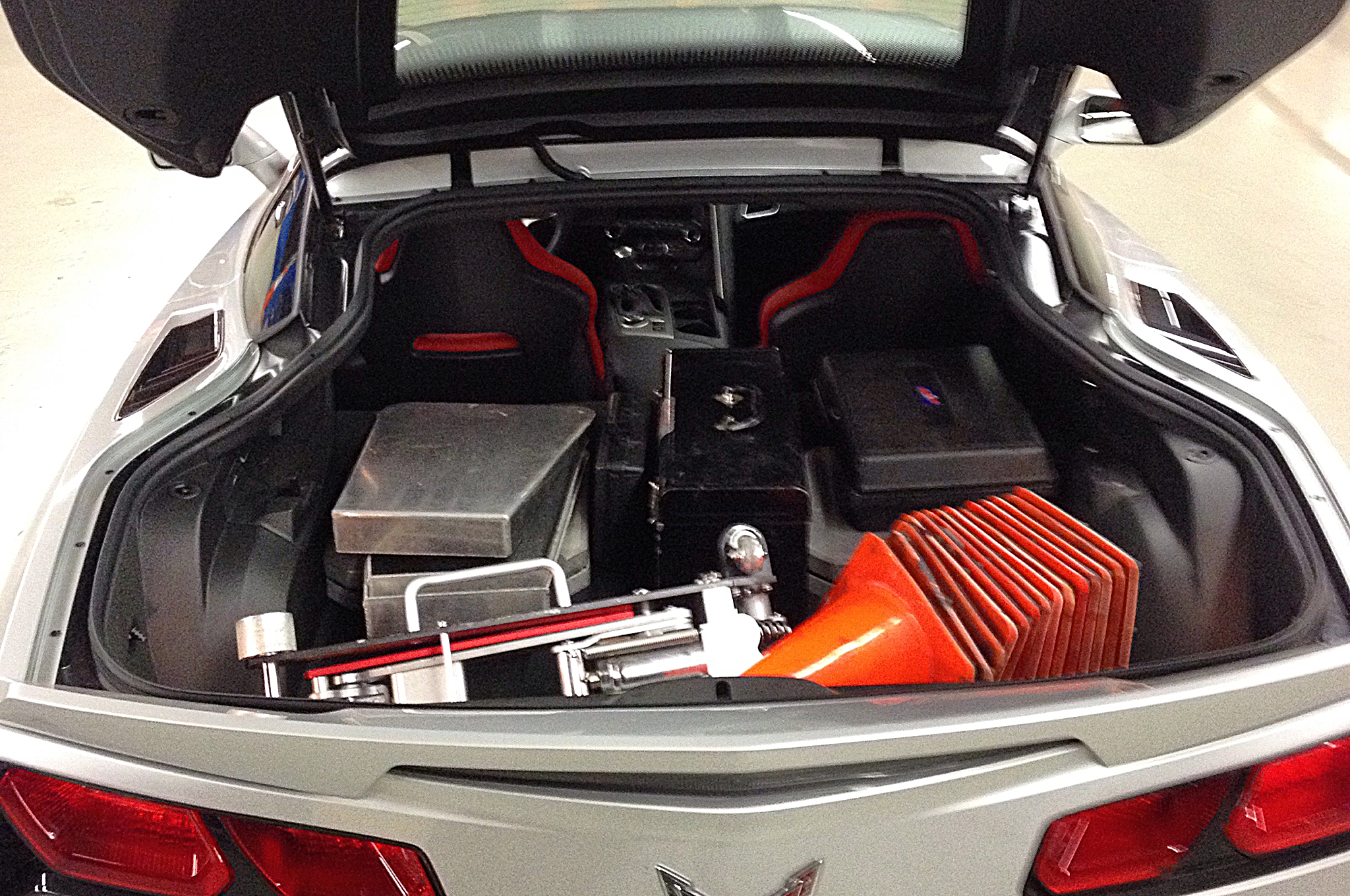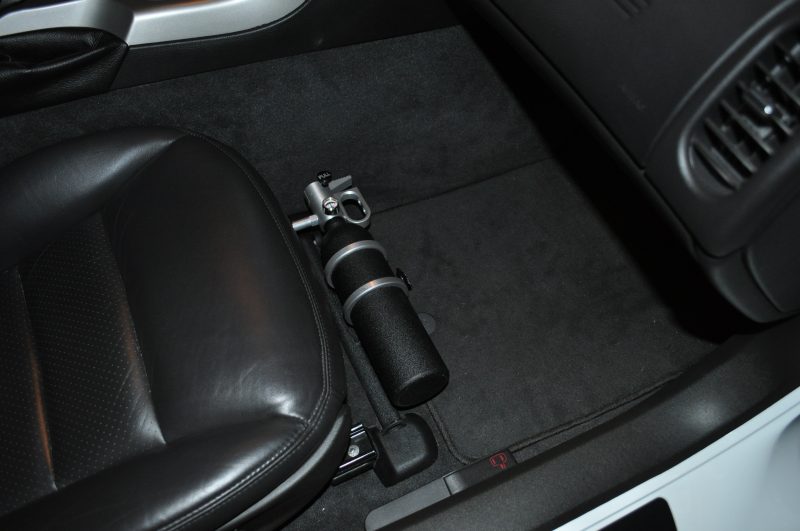8 Things You Should Always Keep in Your Corvette

If you’re taking your Corvette to the track, you don’t want anything extra in it that can add weight or be rolling around. But if you’re using it as your daily driver, you want to keep safety in mind. Here are 8 things you should always keep in your car that can save you in a pinch:
1. Car Information Packet
Put together a packet of information you might need in an emergency. This should include your owner’s manual, the number for your repair shop or a towing company, your auto insurance information and their phone numbers, contact information for any auto club you subscribe to, and a paper map.
Even if you have this information in your phone it’s always good to have a backup. Being stranded is bad enough, but being stranded somewhere your cell phone won’t work could really make for a bad day.
2. Fire Extinguisher

Keep a fire extinguisher mounted under the passenger seat where you can reach it easily if you need to get it right away. It could be the difference between some minor damage and your car burning to the ground. It’s not just for your own car either. You may need it to save someone else who’s caught fire on the side of the road.
3. Emergency Kit
Keeping an emergency kit in your car can help you prepare for numerous situations. Whether it’s an accident or an overnight stay on the side of a deserted road, these kits can help cover some of your basic needs.
4. Good Flashlight With Extra Batteries
Make sure you have a powerful flashlight or mini-lantern for those late-night emergencies. It will be much better than trying to use the light in your phone. Don’t forget the batteries. It doesn’t matter how good your flashlight is: If the batteries are dead or dying, you’re still left in the dark.
5. Duct Tape

From temporary emergency fixes to impromptu first aid, duct tape is a must-have in your emergency car kit. Whether you need to hold something up, keep something down, patch it, secure it, or repair it — the mighty duct tape’s got you covered.
6. Food and Water
On average, most people can survive three days without water and three weeks without food. Most of us will never be in a situation that tests this, but in an emergency situation, having food and water greatly increases both comfort levels and the ability to make good decisions.
Water pouches are a better option than bottles because they’re smaller, and don’t leach plastic when heated. Non-perishable granola or energy bars are good to have around as well.
7. Blanket
Most people think hypothermia only occurs in extremely cold weather, but in reality, hypothermia can happen in temperatures as high as 50 degrees Fahrenheit because people aren’t as cautious, and usually aren’t dressed appropriately to withstand the weather for any length of time.
Having a blanket available year-round will help safeguard you in any weather. If you’ll be traveling in colder climates, consider adding a Mylar blanket as well. They don’t take up much space and can provide an additional layer of protection when needed.
8. Comfortable Shoes or Hiking Boots
If you find yourself having to hike for help, dress shoes or stilettos aren’t going to make the trek easier. Carry an old pair of comfortable walking shoes or hiking boots just in case you have to hoof it to the gas station or nearest source of assistance.
Your Corvette can be a great daily driver as long as you keep it stocked for safety.
